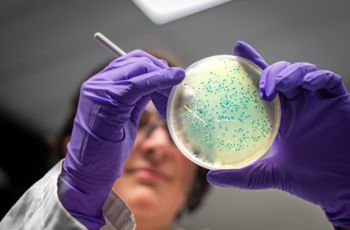The George Washington University (GW) School of Medicine and Health Sciences (SMHS) offers graduate-level programs in clinical and translational research that help to bridge the gap between scientific discoveries and their practical applications in patient care. This innovative approach aligns with the growing need for translational research that effectively moves findings from the laboratory to clinical settings.
Innovative Approaches in Translational Research
The GW SMHS clinical and translational research program employs several innovative strategies to bridge research and practice closer together:
- Interdisciplinary Collaboration: Forming research teams with diverse expertise to address complex health problems.
- Integration of Big Data: Utilizing large-scale data analysis alongside qualitative insights to inform clinical decision-making.
- Patient-Centered Research: Ensuring that new innovations are trialed in the right patient populations.
- Cultural Competence: Overcoming the cultural divide between laboratory scientists and clinicians to foster effective collaboration.
- Sustainable Funding Models: Creating a funding continuum to support long-term translational research efforts.
- Mixed methods: Addressing complex phenomena, difficult-to-measure constructs, and interactions in settings that might not be entirely captured by solely quantitative or qualitative approaches. Mixed methods research has gained popularity in health sciences, integrating both quantitative and qualitative approaches to thoroughly understand intricate health issues.
By mastering these innovative approaches, GW SMHS students are well-positioned to become the next generation of translational scientists who can effectively bridge the gap between research, policy, and practice.
GW SMHS offers an online graduate certificate and a master’s degree in clinical and translational research that is ideal for students looking to build their collaborative and leadership qualities and gain experience working with teams, simulating actual translational research activities in a global environment. Our online program allows you to advance your career on your schedule, wherever you choose to learn.
Upon completion of the Master’s in Clinical and Translational Research, you will be able to:
- Develop a broad foundation and understanding of the philosophies and practices of clinical and translational research in human health,
- Lead and collaborate with other scientists, clinicians, and investigators on translational research teams,
- Develop strategies for health care improvement initiatives,
- Evaluate clinical research processes and standards for protecting human subjects, and
- Develop translational research proposals in collaboration with professionals from other disciplines.
With a Graduate Certificate in Clinical and Translational Research, you will be able to:
- Compose competitive grant proposals to fund clinical trials,
- Apply basic, community health, health services, and clinical research methods to improve patient outcomes,
- Collaborate with cross-disciplinary teams in diverse research settings, and
- Apply expert clinical trial design skills for multi-site projects.
With a Graduate Certificate in Clinical Research Professional, you will be able to:
- Oversee clinical research at the study site level
- Ensure compliance with Good Clinical Practice (GCP)
- Use biostats and epidemiology to inform clinical practice in a research study site
- Improve the practice’s potential for serving as a clinical study site
Learn more about the GW SMHS Clinical and Translational Research Programs:



